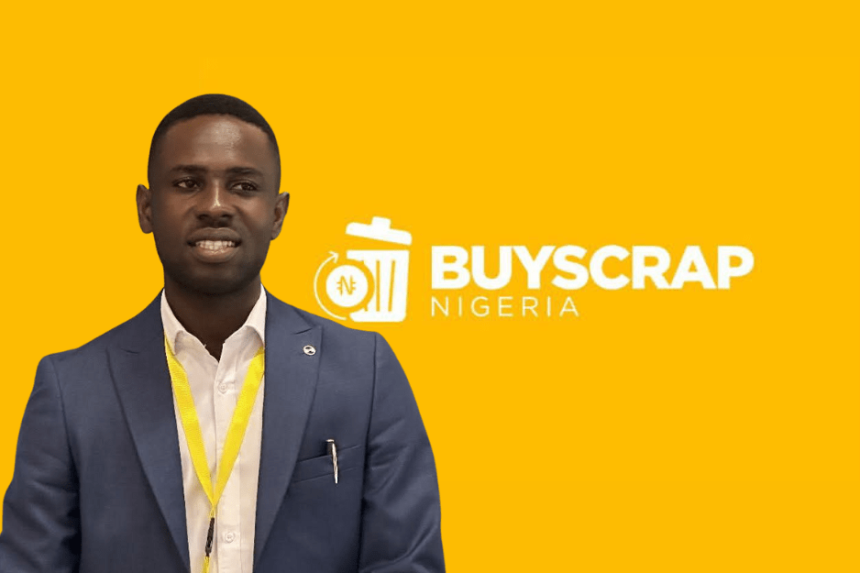The launch of BuyScrap Nigeria marks a milestone in sustainable waste management: a tech-powered, online platform connecting waste producers with recyclers.
Since its 2024 founding, the startup has expanded its reach beyond Lagos, integrating logistics, compliance, and environmental impact in one streamlined digital solution.
Founded in 2024 by mechanical engineer Ndaman Joshua Olayinka, BuyScrap Nigeria operates as a digital marketplace that connects individuals and businesses with certified recycling centers and waste management companies.
According to its LinkedIn profile, the platform supports efficient and environmentally responsible disposal practices across 20+ categories of recyclable materials—from plastics to e-waste.
BuyScrap’s user interface enables sellers to list materials by category and quantity. The platform then matches them to registered recyclers while offering a request-pick-up feature that handles the logistics of collection.
Sellers benefit from competitive pricing data and ad visibility, while recyclers gain reliable supply chains and access to certified waste sources.
Founder’s Vision & Partnerships
Ndaman Joshua Olayinka designed BuyScrap to tackle the inefficiencies of Nigeria’s informal scrap sector.
In addition to operating in Lagos, Olayinka said the initiative has formed partnerships with regulatory bodies such as LAWMA, WAMASON, and EPRON to ensure compliance with safety and environmental standards .
Earlier this year, BuyScrap joined the Delta40 Venture Studio x Bestseller Foundation Circular Economy Programme in Nairobi —its first international expansion effort.
Olayinka described the experience as “a monumental step …co-building transformative ventures in the circular economy.”
Since its inception, BuyScrap has onboarded both businesses and individual waste generators across regions including Lagos, Oyo, Ogun, and Rivers State.
To date, the startup has facilitated pickups ranging from household e-waste —like 20kg of electronic waste in Gbagada —to industrial scrap, using its compliance-first approach to build trust.
The startup has also partnered with NGOs and training bodies to educate informal collectors on responsible practices. This step is critical in converting waste into community income while addressing environmental concerns .
Why This Matters for Nigeria
Nigeria generates an estimated 2,500 kilotons of plastic waste annually, but recycles less than 10% of it. The traditional scrap sector is fragmented, inefficient, and informal.
BuyScrap’s tech-driven marketplace addresses these challenges, offering:
- Market transparency through pricing intelligence.
- Regulatory legitimacy via partnership with government agencies.
- Community impact by empowering informal collectors with fair prices.
By digitizing an informal sector, BuyScrap aligns with national sustainability goals and helps shift Nigeria toward a circular economy model.
Talking Points
The key questions now are distribution and sustainability. Can BuyScrap expand reach into semi-urban and rural areas? Will logistics and regulatory compliance scale effectively with demand?
Obviously, the company is betting on growth through strategic partnerships, enabling technology, and on-the-ground training efforts.
Its early gains demonstrate how thoughtful tech innovation can transform traditional sectors while laying the foundation for scalable, sustainable change.






